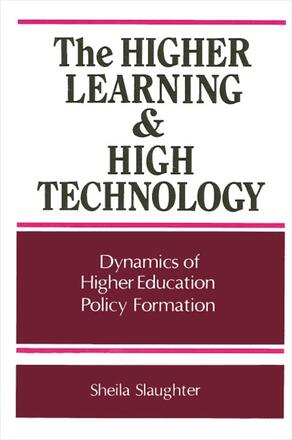
The Higher Learning and High Technology
Dynamics of Higher Education Policy Formation
Alternative formats available from:
Description
In this critical new work, Slaughter investigates how university involvement in high technology influences higher education policy. By conducting a case study of the Business-Higher Education Forum, a liaison organization consisting of Fortune 500 Chief Executive Officers and presidents of well-known research universities, the author explores the policy agenda of the Forum, the historical and structural antecedents of that agenda, and its organizational implications for various post-secondary sectors and their faculty.
Sheila Slaughter is Associate Professor in the Center for the Study of Higher Education at the University of Arizona.
Reviews
"I expect this indisputably mature work of scholarship to be viewed as a substantial and, by many, a seminal contribution to the higher education literature. The book is fascinating to read not only because it is well-written and tightly argued, but especially because of the way that the author invites the reader to reflect on the data and its theoretical implications. Indeed, the book is such a good read that I would strongly recommend it to anyone concerned about higher education. " — Clifton F. Conrad, University of Wisconsin, Madison
"Many consider the topic to be the keystone issue facing higher education and the larger society. The book demonstrates the valve of a neo-Marxist approach for the study of higher education in a way that will be accepted by individuals who do not consider themselves neo-Marxists. " — Robert J. Silverman, The Ohio State University